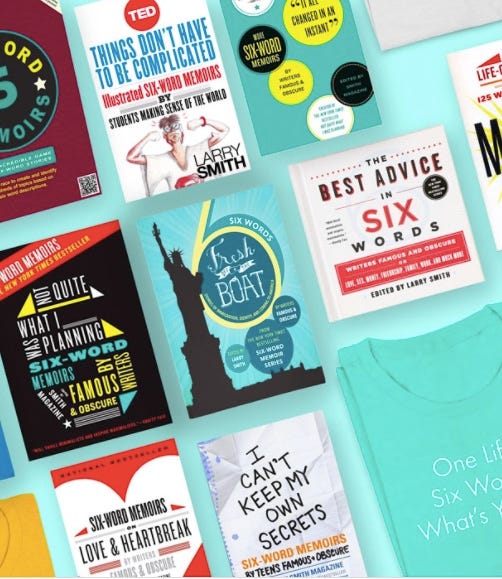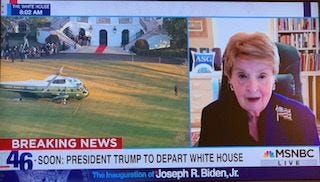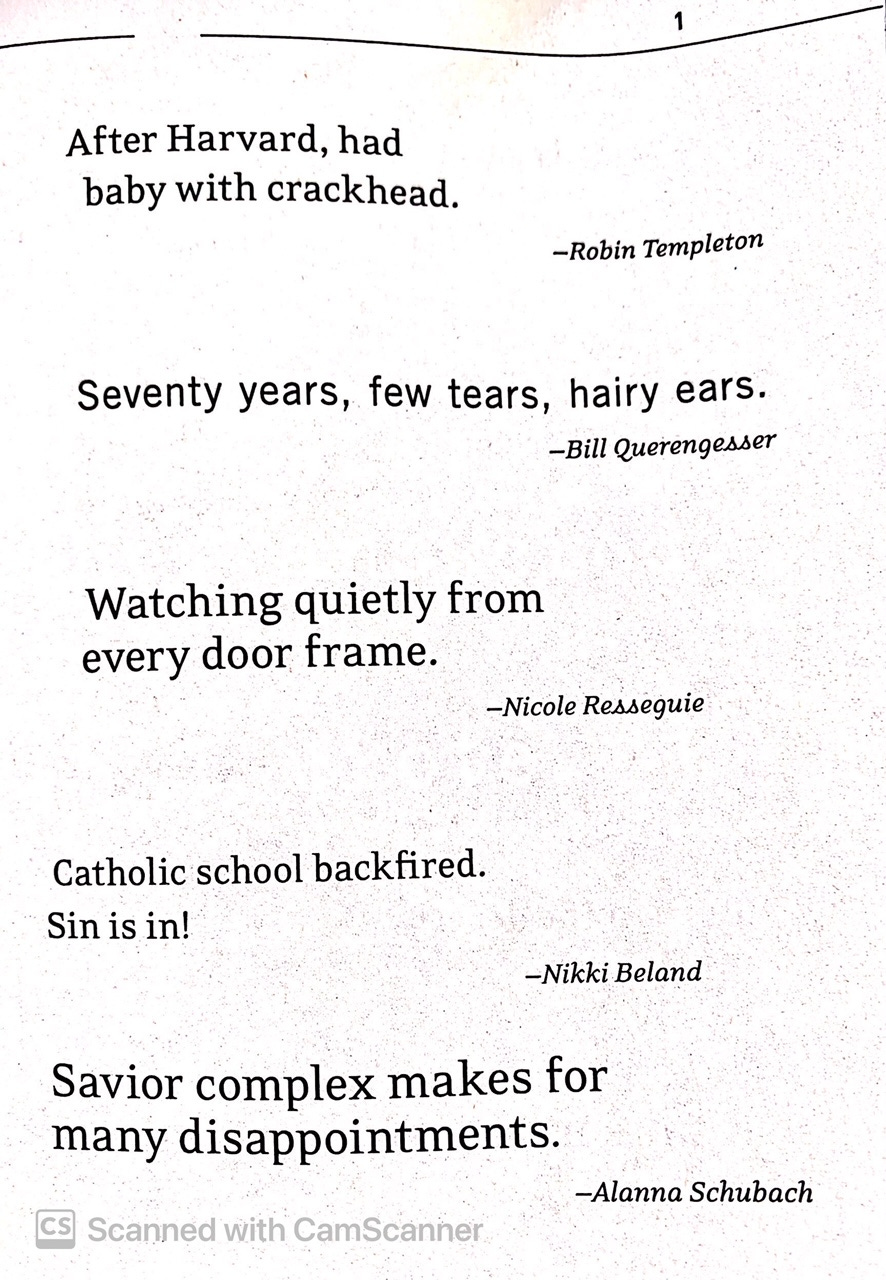It's All About Space: Six Feet, Six Words, & More
Welcome to the new space of The Six-Word Memoir Project newsletter, now called "Say Less."
Welcome to Say Less, by Larry Smith & The Six-Word Memoir® Project.
Hello to our thousands of current subscribers and to the new ones who we’re thrilled to welcome to our storied world. This is the new incarnation of The Six-Word Memoir Project newsletter by me, Larry Smith. I’m the creator of The Six-Word Memoir Project, a bestselling book series, popular lesson plan in schools, tool for connection in companies and organizations, and form of expression taught and shared around the world. My mission in life is to help you to tell the story of yours.
A version of this newsletter will always be free, but if you become a paid subscriber, you’ll receive special features like: tips on the craft of writing; free guides that help bring short, impactful storytelling to your company, school, or nonprofit; and ALA (“Ask Larry Anything”) about storytelling, turning your passion into your profession, and—why not?—what it’s like to have a version of your story told in Orange Is the New Black. Your paid subscription also means we can give a free subscription to a teacher.
Reader Challenge: “Six-Words on Space”
On sixwordmemoirs.com and on Substack, we’ll be posing reader challenges (and giving out prizes!).
As we celebrate our new space on Substack, we’re curious about your take on space during this unique moment in history. Some people look to outer space for answers, while others turn inward and use meditation to clear their headspace. Relationships falter because one partner “just needs some space” and teachers chide kids for not listening because they’re “spacing out.” In six words, tell us about a time you needed some space, or when you needed anything but space. As 2021 keeps on rolling, what is your relationship to space?
Share your six words on space in the comments or on our site for a chance to win a Six-Word Memoir book. And be on the lookout for more six-word prompts in this newsletter.
Celebrity Six: Madeleine Albright on 45 leaving the White House
Look who was being interviewed on Morning Joe as Trump's helicopter left DC: former Secretary of State, Madeleine Albright. When asked what she was feeling at this moment, she replied: “You know, I was asked to describe myself in six words not long ago: 'Worried optimistic, problem solver, grateful American,’ and that’s how I feel now.” You know who asked her? Me, your nonstop pied piper of Six Words! Madam Secretary also was kind enough to share her Six-Word Memoir in our Six Words on Immigration book: “In 1948, I was a refugee.” We are so glad America welcomed you.
The Craft of Storytelling: Tip #1—Be Specific
People often ask me what makes a good Six-Word Memoir. The short answer is: all the elements that make a good longer-form piece! It’s obviously more nuanced than that, so I’ll be sharing tips for writing a great Six-Word Memoir in our next few public posts. Eventually these will be exclusively available to our paid subscribers who support this project, particularly our work in schools. But for now, let’s start at the beginning.
We are all experts at the story of our lives, whether it’s our personal life; our work life; or the people, places, and things that matter to us most. Yet, when our words are too general, our readers (or any audience) is left to try and make sense of our story from 10,000 feet away when where they really need to be is only six inches away. To help with this, try breaking down your story into a series of Six-Word Memoirs (or Six-Word Missions or Six-Word Values).
Let’s say you’re starting at the beginning of your life: “I was born on a farm.” Not bad, but not a very specific six words.
Maybe next, you try: “Attended college, then had a baby.” The reader naturally is wondering: What college? Who did you have the baby with?
Now the author has to dig into their story and revise: "After Harvard, had baby with crackhead."
Better story, right? (And, dear reader, this is a true story and the first Six-Word Memoir found in our first book).
By being specific you can say more while saying less. Try writing the same story in six words three different times—each time finding a way to make it more specific and carry more meaning. Share your specificity spectrum in the comments.
Tip #2, coming in the next newsletter: “Be honest.”
Featured Classroom:
The Pandemic in Six Words
When the pandemic starting shutting down in-person learning last year, we quickly put together a free teacher’s guide, “My Life Now: The Pandemic in Six Words,” offering educators another tool to help students make sense of this tough new world. Sarah Nguyen, a sixth-grade teacher at High Point Academy in Pasadena, CA, saw Six-Word Memoirs as an innovative way for students to describe their emotions and experiences while learning from home. They wrote memoirs that ranged from the universal (“I’m bored and so are you”) to the personal (“Read every book in the house”), from the state of education (“My eyes hurt from online learning”) to the state of the world (“Oceans and ozone are healing better”). They made sense of a world that no one expected to be living in. And Nguyen shared her own Six-Word Memoir about these tricky times: “Locked in with my toddler. Help.” Although the pandemic kept students from seeing each other in the classroom, sharing their memoirs helped connect them through the relatable experience of being a kid stuck at home. Read more here.
Six-Word Review: “Letters of Note” Newsletter
In each issue of our newsletter, we’ll celebrate another Substack newsletter (one which shares our passion for storytelling) with a Six-Word Review. First up: Letters of Note by Shaun Usher. Our review:
“Unearthing striking stories through postmarked history.”
Read it for yourself here.








